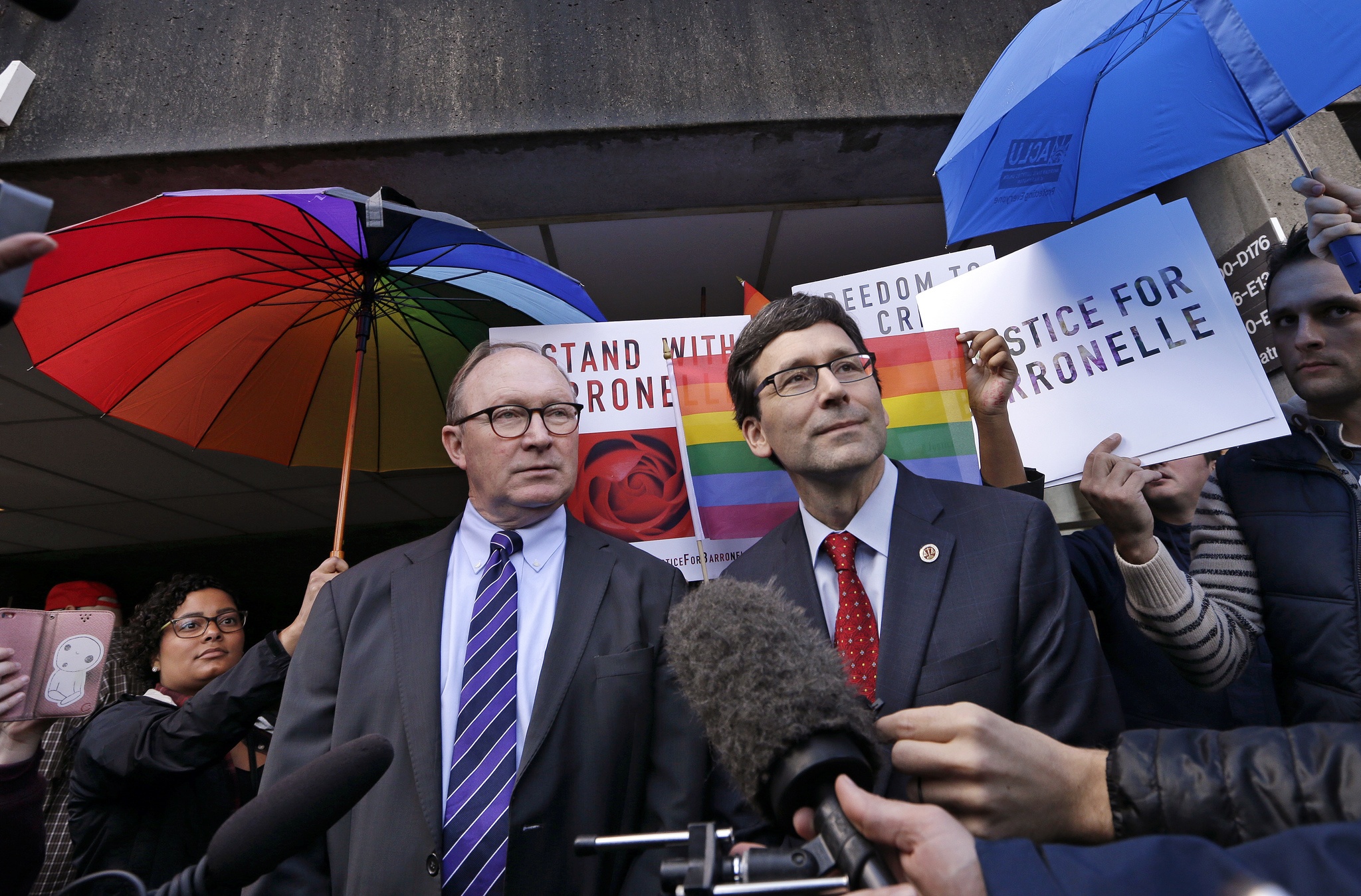By Gene Johnson
The Associated Press
BELLEVUE — A florist who was sued for refusing to provide services for a same-sex wedding says she was exercising her First Amendment rights, but state Supreme Court justices repeatedly questioned Tuesday whether ruling in her favor would mean other businesses could turn away customers based on racial or other grounds.
The court heard arguments in the closely watched case against Barronelle Stutzman, a 71-year-old florist in Richland who was fined by a lower court for denying service to a gay couple in 2013.
Stutzman had previously sold the couple flowers and knew they were gay but told them she couldn’t provide flowers for their wedding because same-sex marriage was incompatible with her Christian beliefs.
Washington Attorney General Bob Ferguson and the couple sued her, saying she broke state anti-discrimination and consumer protection laws, and the lower court agreed.
It’s one of several lawsuits around the country — including some involving bakers and wedding photographers — about whether businesses can refuse to provide services involving causes they disagree with or whether they must serve everyone equally.
“A Muslim graphics designer should not be compelled to create designs promoting a Jewish Friends of Israel group, a gay public relations manager shouldn’t be forced to promote the Westboro Baptist Church, and a Christian floral designer shouldn’t be forced to create custom wedding designs for a wedding that is not between one man and one woman,” Stutzman’s attorney, Kristin Waggoner, told the court.
Waggoner immediately ran into questions. Justice Susan Owens brought up the state’s first and only black justice, the recently deceased Charles Z. Smith, who had to stay in separate hotels from other attorneys when he traveled the country while working for the Justice Department in the 1960s.
“How is this different?” Owens asked. “Because I’m sure some of the owners of those hotels would profess they had strongly held religious beliefs that prohibited racial integration.”
For one thing, Waggoner responded, renting out a hotel room isn’t a form of artistic expression or speech deserving of protection. Stutzman’s floral arrangements do constitute expression protected by the Constitution, the lawyer said, and the government can’t compel that expression.
“If we even get to the point where we might acknowledge that making floral arrangements is freedom of expression, what’s the limiting principle?” asked Justice Mary Yu. “Is it the landscape architect next? Is it the bartender?”
Justice Steven Gonzalez wanted to know why a business could refuse a gay couple but not an interracial couple.
Waggoner suggested that her client’s objections were based on a message — her opposition to same-sex marriage — rather than about targeting people for who they are, as the “unique evils of racial segregation” did.
Justice Sheryl Gordon McCloud interrupted: “So racial discrimination would be based on a bad religious belief, according to you, but this discrimination would not be based on a bad religious belief. Doesn’t that task the courts with what’s a good religious belief and what’s a bad religious belief?”
Waggoner said it doesn’t.
“The context of marriage is very different,” she said, noting that millions of people believe marriage should be between one man and one woman, and those beliefs aren’t necessarily rooted in religion.
Michael Scott, a Seattle attorney who worked with the American Civil Liberties Union to represent Robert Ingersoll and Curt Freed — the couple denied the flowers — said he didn’t believe Stutzman’s floral creations constituted speech.
By providing flowers for a same-sex marriage, he argued, “she’s not endorsing same-sex marriage. She’s selling what she sells.”
Ferguson said the state’s argument rests on longstanding principle and uprooting it would severely weaken antidiscrimination law.
“ ‘No shoes, no shirt, no service’; ‘We do not use profanity in our messages’ — a business can absolutely have policies in place about the services they provide, as long as they apply that policy equally and not discriminate or refuse service or say, ‘We do not serve your kind,’ ” Ferguson said.
After the arguments, held in a packed theater at Bellevue College, a large crowd of Stutzman’s supporters greeted her outside, chanting her name and waving signs with pictures of roses that said “Justice For Barronelle.”
She told them she still feels fondly for Ingersoll, her old customer.
“To me, marriage is a very sacred event,” she said. “The government is asking me to choose between my affection for Rob and my faith.”

